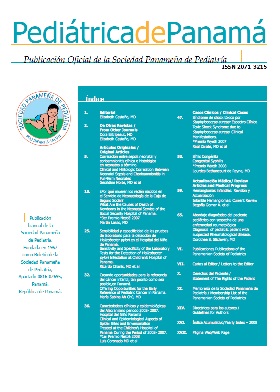Alport syndrome: Role of semiology and genetics
Authors
DOI:
https://doi.org/10.37980/im.journal.rspp.20221930Keywords:
Hematuria, Alport, Proteinuria, Collagen IVAbstract
Alport syndrome is a progressive kidney disease, due to alterations of the glomerular basement membrane secondary to mutations in the COL4A4, COL4A5 and COL 4A6 genes of type IV collagen with three hereditary patterns: X-linked, autosomal dominant and autosomal recessive. There is no specific treatment for Alport Syndrome. The main goal of the therapeutic options is to prevent rapid progression to chronic kidney disease and improve the patient’s quality of life. The report of a 5-year-old female, who attended the emergency room with abdominal pain, edema in the lower limbs and microscopic hematuria, the rest of the laboratory and clinical studies with findings suggestive of acute appendicitis. A diagnosis of acute appendicitis and nephritic syndrome was made, however, due to the persistence of hematuria and family history, Alport syndrome was suspected. Treatment with angiotensin-converting enzyme inhibitors was started and renal biopsy was performed, reported minimal change and without electron microscopy report. The patient quickly progressed to nephrotic range proteinuria and started corticosteroids and calcineurin inhibitors without response. A confirmatory genetic panel was performed, Alport syndrome was diagnosed, and immunosuppression was suspended.
Downloads
Additional Files
Published
Issue
Section
License
Copyright (c) 2022 Infomedic Intl.Derechos autoriales y de reproducibilidad. La Revista Pediátrica de Panamá es un ente académico, sin fines de lucro, que forma parte de la Sociedad Panameña de Pediatría. Sus publicaciones son de tipo gratuito, para uso individual y académico. El autor, al publicar en la Revista otorga sus derechos permanente para que su contenido sea editado por la Sociedad y distribuido Infomedic International bajo la Licencia de uso de distribución. Las polítcas de distribución dependerán del tipo de envío seleccionado por el autor.






